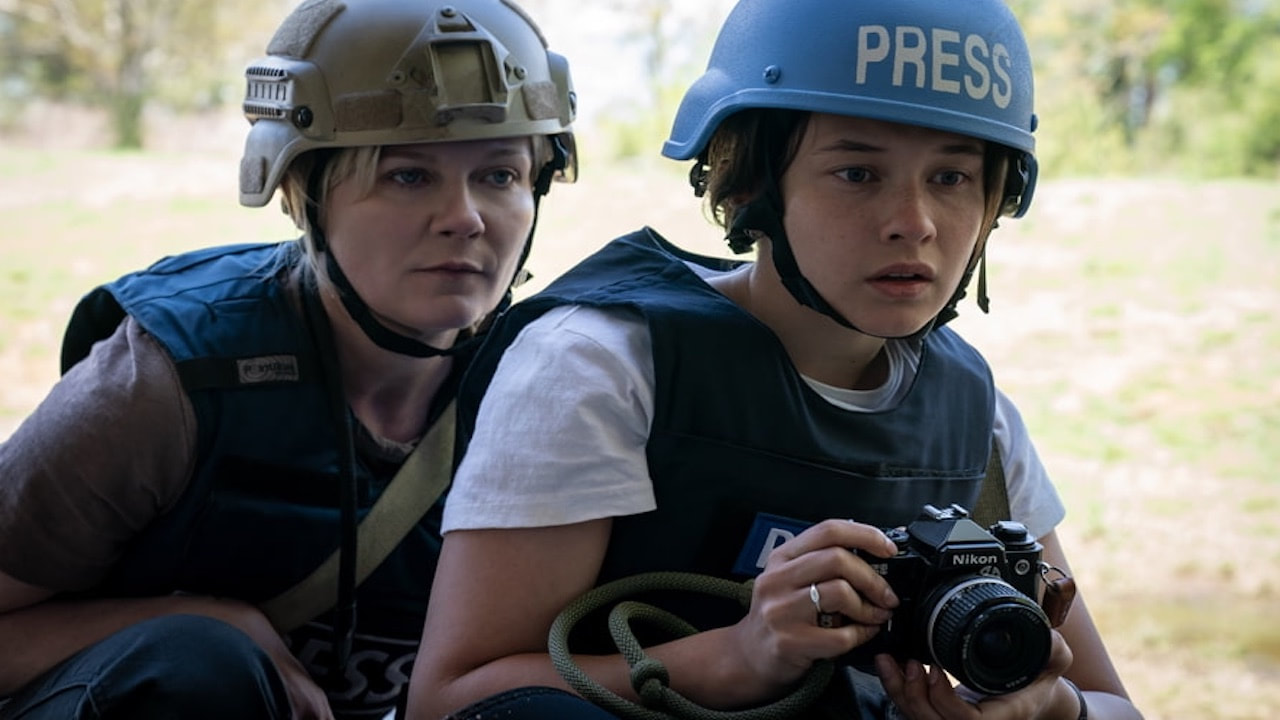|
About to Snap: Civil War
There have been some negative reactions to director Alex Garland’s (28 Days Later, Ex Machina) provocatively-titled thriller, Civil War. The backdrop is enticingly dramatic: in an unspecified near future, The United States of America is divided into warring regional factions. It’s full-out war, with violent guerilla units in the streets and heavy artillery blasting neon jets across the night skies. And yet, this film is not really about that, and I think that’s where the disappointment might lie. Yes, the civil war exists, but Garland doesn’t really dissect it. We have no idea who anybody is politically, and with developments such as Texas and California aligning, we can safely say we’re in fantasy territory. If you’re hoping for a bloodthirsty onslaught, where your side sticks it to the other, then this is not the film for you. Nothing is defined on a macro level (an intelligent choice, I think) - this is all about the personal. It’s a road trip, a buddy movie, a dissection of journalism and a tribute to the war correspondents that Garland grew up around as the son of a political cartoonist. Kirsten Dunst plays conflict-hardened war photographer Lee Smith (a nominative genuflection to real-life WWII photographer Lee Miller), and the movie tracks her odyssey from New York to Washington D.C. to track down the President (Nick Offerman). Manhattan feels like 1973 Phnom Penh at the end of the Cambodian War, with the press holed up in a hotel, drinking through the power cuts. Here we meet Smith’s colleague Joel (Wagner Moura), a charismatic, gung-ho thrill seeker, as well as veteran correspondent Sammy (Stephen McKinley-Henderson) and young upstart Jessie (Cailee Spainey). There seems to be a real trend in modern media to have a battle-scarred elder transport a vulnerable innocent along a treacherous journey (cf. The Last of Us, The Mandalorian, etc), and this movie broadly falls into that category. In their trusty press truck, the gang set out across a lawless country. We encounter local militia, rogue army units, refugee camps, death squads and isolated men fighting personal battles. There’s even a bucolic small town where it’s business as usual, the clothing boutiques open and quotidian life continuing despite the snipers on the roofs. There’s brutality (especially the jarring cameo by Jessie Plemmons), danger and a sense of chaos. It’s a very analogue war, with automatic weapons and film cameras rather than drones and digital media. Smith is Jessie’s hero, and there’s a sharp learning curve as the experienced, decorated war photographer (“You took that legendary picture of the Antifa Massacre,” Jessie gushes) educates the inexperienced snapper in the most grueling on-the-job training imaginable. It’s a visceral experience, with gorily bleeding casualties, mass graves and gunpoint negotiations all a part of everyday life. Garland has taken pains to make this a very personal film. Civil War is less about politics and is more concerned with the documentation of atrocity and how it shapes its witnesses. It values poetic truths and intimacy, and I’d argue it’s a better film for it. (PO) Comments are closed.
|
NEWSPreviews, reviews, offers and news in New Orleans. Categories
All
Archives
July 2024
|

 RSS Feed
RSS Feed